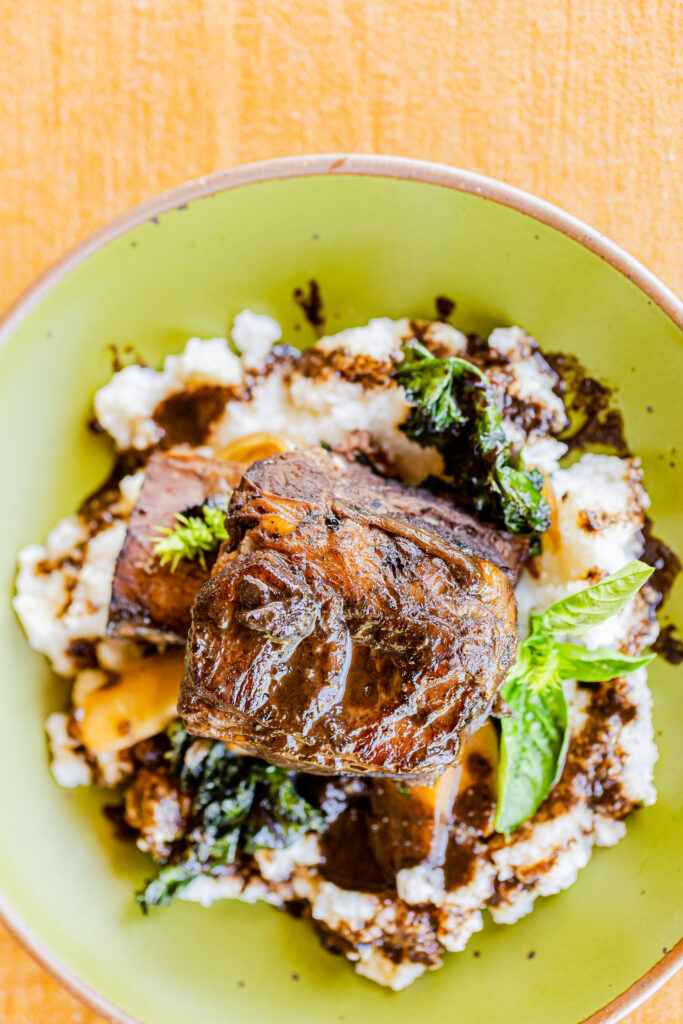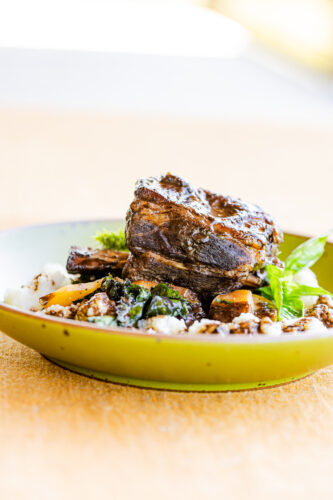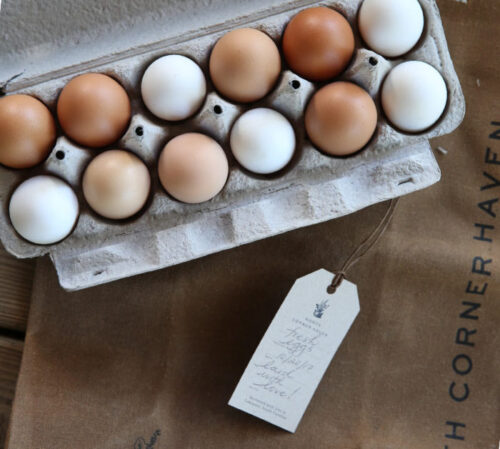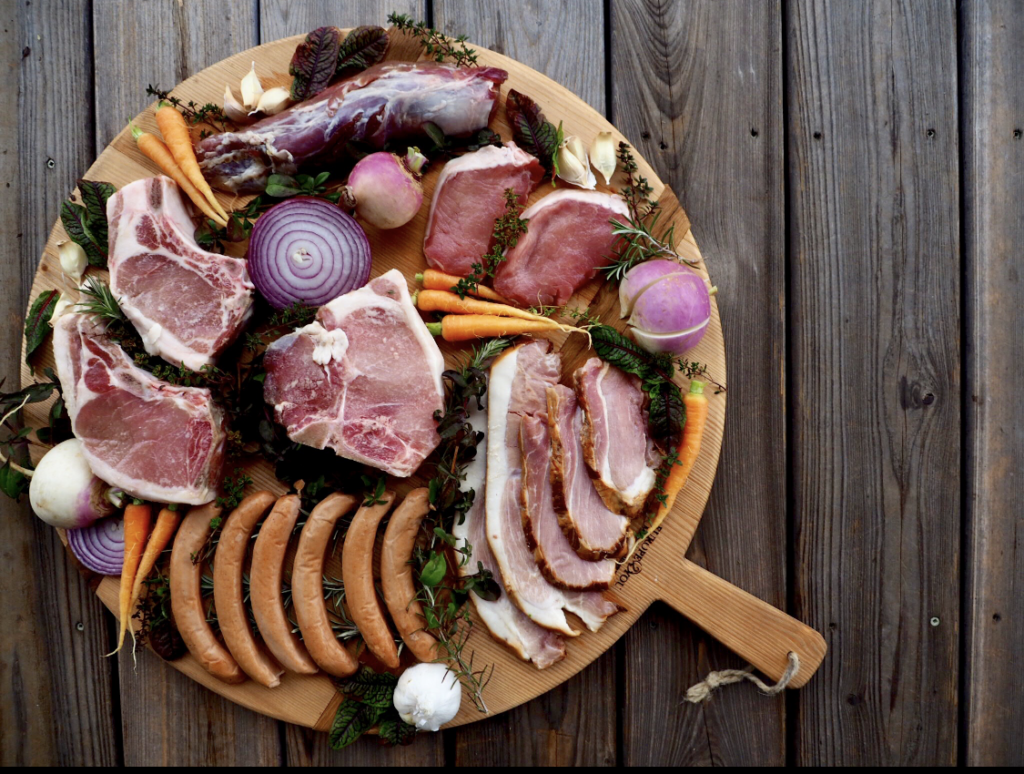Bone – In Pork Chops with Dijon Cream Sauce
Bring your regular pork chops to a whole new level with this flavorful mustard cream sauce. These bone – in pork chops topped with rich creamy goodness are pan-fried and finished in the oven. How good does this sound? Add it with your favorite fall vegetable or even better, blackened grits like these from Anson Mills – a fan favorite no doubt! Remember to always shop local when you can – our pastured raised chops are the perfect protein for this dish, with each pack having two chops. Want to ditch the bone? Try our boneless chops, perfect for a lighter fare.
Ingredients:
For the Pork Chops
- 4 Bone – In pasture raised pork chops (from our farm shop, of course!)
- Salt and pepper – to taste
- 2 tsp oil
For the Mustard Cream “Pan” Sauce
- 1 tbsp butter
- 1 cup chicken broth – I used low sodium
- 2 tbsp whole grain dijon mustard
- 1 cup heavy cream
- ½ tsp salt, or to taste
Cooking Instructions
- Preheat the oven to 425 degrees.
- Generously season pork chops with salt and pepper on both sides.
- In a large skillet over medium heat. Drizzle oil into the pan.
- Add pork chops to the pan and sear on both sides for 2-3 minutes. Transfer to a plate and cover to keep warm.
- To prepare the sauce, add butter to the pan.
- Add chicken broth. We love this one from kettle & fire. Whisk in dijon mustard, then cream. Stir in salt and pepper.
- Return pork chops to the pan, spoon some of the sauce over the pork chops, then transfer to the oven.
- Cook for 10 minutes. Spoon liquid from the pan over the pork chops. Cook another 10-15 minutes until pork is cooked through and sauce is thickened.
- Spoon more sauce over the pork chops, garnish with black pepper and fresh herbs if desired and serve.
Note – If you are using really thick bone in pork chops, they will retain a lot of moisture. Be sure to reduce the cooking time if using a thinner chop.
Bon appétit!





